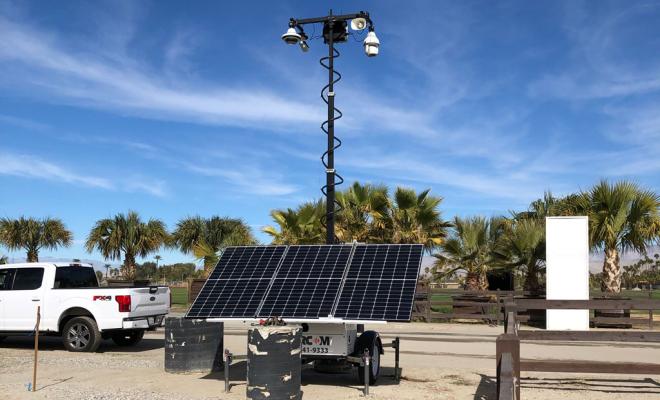Last of a three-part series. We all know they’re out there — people who can’t be bothered with getting their two-way radios (walkie-talkies) licensed by the FCC. Even though the product packaging states clearly and explicitly that FCC licenses are required for most two-way radios, people ignore the requirement. Perhaps, if you keep your head down and stay out of trouble, you may be able to use radios unlicensed for years. If your signals are not interfering with anyone else’s, there’s a chance the FCC will never find out. But those are big “ifs.” The truth is, going unlicensed is not worth the risk.
What Can Go Wrong if Your Radios are Unlicensed?
Let’s say you run a small construction firm in your town and you need a few mobile radios in your trucks and half-a-dozen portables for your work crews. If the FCC does not know you’re using these radios, it could assign the channels you depend on to someone else without warning. One day your radios work fine, but the next day you can’t get through because other people are using those same channels. And you have no recourse because you’re operating outside the law. If you have your license, the FCC will do its best to make sure your frequencies don’t overlap with someone else’s. Of course, there are only so many channels to go around and conflicts can occur, but the licensing system works far better than trying to fly under the radar and hoping for the best.
Read More of Our FCC Blogs
What Happens if You Get Caught Using GMRS Without a License?
If you're not worried about General Mobile Radio Service (GMRS) license enforcement, then consider this:
Say you’re using radios unlicensed for years until somebody gets assigned to your frequency. They file a complaint against you because your employees are stepping on their transmissions. Since that is not your assigned frequency, you can no longer use it, and your transmission on it is forbidden by federal law. The party who has been assigned your frequency is legally in the right if they report you to the FCC, and you not only lose that frequency, but now you are also in a bind to find a replacement. Normally the FCC will simply mail you a cease-and-desist letter demanding that you stop using the radios illegally until you get your license. If you do not respond in a timely manner, the FCC could decide you’re willfully disobeying the law. You can be fined thousands of dollars each day, enough to put you out of business if you own a small company.
Can’t I Just Use One of Those Unlicensed Radios?
The inexpensive radios you take on hikes or shopping trips aren’t built for commercial use and have extremely limited range and functionality. The FCC has set a few channels aside for these radios, but you would not have channels reserved for your business. You’d have to share the airwaves with others who have no regard for your need to serve your customers and make a profit.
What Frequencies Can I Use Without a License?
It is worth noting that some two-way business radios operate on MURS frequencies or the ISM band that do not require licensing. While these radios may be adequate for light-duty use in some enterprises, they generally do not provide the functionality and durability needed for most professional uses.
What Happens if I Use Ham Radio Without a License For My Business?
Forget about using ham radios. Ham radios require a license, and, more importantly, business use of ham channels is forbidden. There is a large community of hobbyists and enthusiasts who sustain the ham radio industry, and they are zealous guardians of their channels. If you try to use ham channels for commercial purposes, it is likely you will be reported to the FCC.
What if I Just Don’t Want to Deal with the Federal Government?
You really don’t have to. Dealers are an excellent resource to work through the process for you. And generally, the life of an FCC license is 10 years. When you get your two-way radios from BearCom, you sales person can not only help you pick the right radios, our team can also work with intermediary coordinators to figure out the cleanest possible spectrum(s) for you to use. As the end-user customer, you simply fill out some basic paperwork. Once the intermediary clears the channels with the FCC, which generally approves the submission (when done properly), BearCom can program the right channels into your radios and you’re all set.
People Also Read:
Additional information about BearCom’s FCC Licensing Services.
For assistance with your FCC licensing, contact Support Services at 800.458.9887. Or, email: [email protected]
About BearCom BearCom provides a broad line of high-performance wireless communications products, services, and complete mobility solutions. Founded in 1981, BearCom is America’s only nationwide dealer and integrator of wireless communications equipment, serves customers from 29 branch offices located throughout the U.S., and employs approximately 360 people. BearCom is headquartered in the Dallas, Texas area. Read more on our About Us page. MOTOROLA, MOTOROLA SOLUTIONS and the Stylized M Logo are trademarks or registered trademarks of Motorola Trademark Holdings, LLC and are used under license. All other trademarks are the property of their respective owners. ©2015 Motorola Solutions, Inc. All rights reserved.

